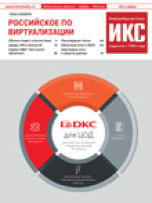| Рубрикатор |  |
 |
| Все новости |  |
World News |  |
 |
Cyberattacks aimed at defence groups
| 15 января 2010 |
The cyberattacks that have compromised computers at Google and other US technology companies doing business in China have also been aimed at extracting secrets from defence contractors, investigators said on Thursday.
Malicious software on machines at companies attacked in the latest blitz sent proprietary data off to six web addresses in Taiwan that had received information from US defence groups before.
The defence companies had been attacked using methods similar to those deployed against nearly three dozen high-tech groups including Google, which went public with the spying matter this week, pointing a finger at the Chinese government.
“Partners of ours in the defence industry said that those addresses have been used in attacks before,” said Eli Jellenc of iDefense, a Virginia security firm hired by some of the recent targets. He said Taiwan was merely the last stop on the trail, not a suspect itself, and that the campaign was now seen to be after military information as well as high-tech know-how and data on domestic activists.
Mr Jellenc and others involved in the inquiry said the attacks used several techniques simultaneously. Microsoft confirmed that a previously unknown vulnerability in its Internet Explorer web browser had been used in the attacks and promised to issue a patch.
Other companies attacked in the spying effort that confirming their involvement included security software provider Symantec, which has a Chengdu research centre jointly owned with Chinese firm Huawei, and more than 1,000 of its employees. Symantec said it was “thoroughly investigating”.
Defence group Northrop Grumman and web portal Yahoo did not dispute reports that they had been attacked as well.
Google has turned the breaches into a debate over the Chinese government’s attitude to both intellectual property and censorship of the web, threatening to withdraw from the country rather than continue to suppress search results.
One of China’s top propaganda officials yesterday reaffirmed the state’s commitment to online control, showing no sign of compromise, while the US backed Google more solidly.
Wang Chen, head of China’s State Council Information Office and deputy head of the Communist party’s propaganda department, said online media “must live up to their responsibility of maintaining internet security”.
Mr Wang did not mention Google by name, but his remarks were seen as Beijing’s first response to the group’s threat to quit the country.
In a lengthy statement published on a Chinese government website, Mr Wang said China faced new challenges in regulating the internet and that “Online media must treat the creation of a positive mainstream opinion environment as an important duty.” He said China has also been “a victim of hackers and resolutely opposes hacking”.
“To maintain internet security, we need international co-operation and close co-ordination.”
An adviser to the Obama administration supported Google, in the latest sign that the relationship between Washington and Beijing is entering a more turbulent phase than just a few weeks ago.
In some of the strongest comments yet on the case, a senior administration official gave US “approval, admiration and support for what Google has said in not participating in censorship of its site”. The official also expressed solidarity with Google’s complaint about cyberattacks: “A lot of American institutions have faced intrusions and certainly many of them have come from Chinese origin.”
Meanwhile, the American Chamber of Commerce in China said its members were optimistic about future prospects, but concerned about the security of commercial correspondence, data and networks.
Google showed no sign of bending. “We’ve said already that we will be taking a new approach in China,” the company said, adding that it had made contact with the Chinese authorities over the issue. David Drummond, chief legal officer, said in a radio interview that he expected talks to start very soon.
Источник: Financial Times
Читайте также:
Глобальный рынок облачной инфраструктуры за год подобрался к $300 млрд
Продолжаются переговоры о строительстве в Казахстане дата-центра Microsoft
Африку и Австралию соединит подводный кабель
Microsoft инвестирует $2,9 млрд в развитие технологий в Японии
Google приступила к строительству второго кампуса ЦОДов в Бельгии

















Оставить свой комментарий:
Комментарии по материалу
Данный материал еще не комментировался.